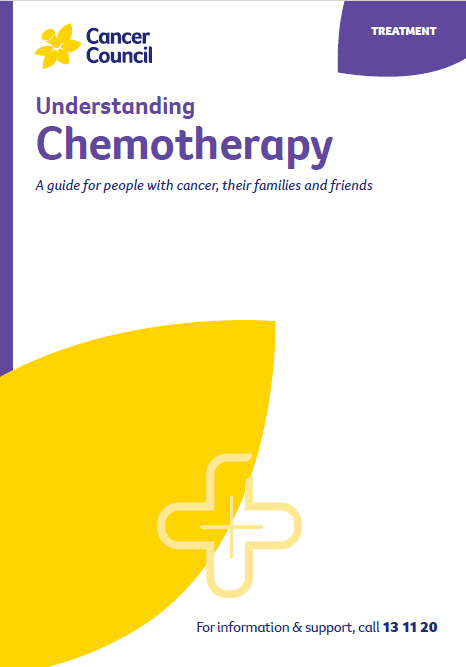- Home
- About Cancer
- Cancer treatment
- Chemotherapy
- Managing side effects
- Blood-related side effects
- Bleeding problems
Bleeding problems
A low level of platelets (thrombocytopenia) can cause problems. You may bleed for longer than normal after minor cuts, have nosebleeds or bleeding gums, or bruise easily. Periods may be longer or heavier.
Your treatment team will monitor your platelet levels. If chemotherapy causes severe thrombocytopenia, you may need a platelet transfusion. Ask your specialist to explain the risks and benefits of this procedure.
Contact your doctor or call Triple Zero (000) if you have persistent bleeding, such as a nosebleed, that doesn’t stop within 30 minutes.
How to manage a low platelet count
- Be careful when using knives, scissors or needles, as you may bleed easily from small cuts or nicks.
- Use an electric razor when shaving your face or body to reduce the chance of nicking yourself.
- Wear thick gloves when gardening to avoid injury. This will also prevent infection from soil, which contains bacteria.
- Avoid contact sports and high-impact activities, as these could cause bruising or bleeding if you get knocked or fall over.
- When brushing your teeth, use a soft-bristled toothbrush to avoid irritating your gums.
- Wear comfortable, well- fitting shoes indoors and outdoors to avoid cuts on your feet.
- Blow your nose with care.
- If you bleed, apply pressure to the area for about 10 minutes and bandage as needed.
- If you have problems with bleeding, talk to your doctor.
Podcast for people affected by cancer
Listen now
More resources
A/Prof Kate Mahon, Director of Medical Oncology, Chris O’Brien Lifehouse, NSW; Katherine Bell, Dietetics Department, Liverpool Hospital, NSW; Brigitta Leben, Dietetics Department, Liverpool Hospital, NSW; Sophie Michele, 13 11 20 Consultant, Cancer Council SA; Dr Jess Smith, Medical Oncologist, Macquarie University Hospital, NSW; Karene Stewart, Consumer; Julie Teraci, Clinical Nurse Consultant, Skin Cancer and Melanoma, Cancer Network WA.
View the Cancer Council NSW editorial policy.
View all publications or call 13 11 20 for free printed copies.

